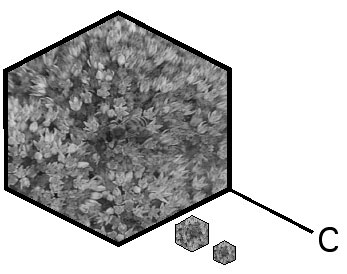One Man Bands for One Man Lands
King of the road and king of the 43 tone scale, Harry Partch drove a freight train through the conventional music landscape whilst retuning the payment methods of the US public transport system. Hari Kunzru reports...
The recent American Pioneers concert season at the Barbican will be remembered as a defining moment in the British reception of American Minimalist music. Performances of works by major figures such as John Cage, La Monte Young, John Adams and John Zorn gave London audiences a chance to hear a range of compositions, some familiar (Philip Glass's 'Koyaanisqatsi', Terry Riley's 'In C'), some decidedly less so. One of the most eagerly-anticipated events was Newband's performances of works by the American hobo composer Harry Partch. Largely ignored during his lifetime, Partch's hour may have come, as his unconventional interests start to chime with the DIY approach of many contemporary musicians operating outside the academy.

Partch (1901-74) was one of the great iconoclasts of twentieth century music. Growing up in Arizona, the son of ex-missionary parents, he had an unusual set of early musical influences - Chinese songs sung by his mother to the accompaniment of a reed organ, the chants and rituals of the remaining local Yaqui Indians and his own part-time piano playing in an Albuquerque cinema. In his late twenties Partch burnt all his compositions, realising that "in pursuing the respectable, the widely-accepted, I had not been faithful". He then took the decision to abandon conventional modes of musical expression and devise his own system.
Partch's move was in some ways a typical avant-garde gesture, the artist signalling his rupture with deadening tradition. However it also involved a positive relationship with tradition which made it far more complex than much ?shock of the new' modernism. He based his bizarre 43-tone scale on Just intonation, the mediaeval European tuning system. In Just intonation the intervals of the scale are based on the pure intervals of the natural harmonic series. The diatonic scale which forms the basis of modern Western classical music is a so-called "tempered" scale. Temperament, the modification of tuning to lesson dissonance between tones, was first proposed by Milanese musicologist Franchinus Gafurius in his 1496 treatise Practica Musica. In physical terms, dissonance, harshness or ?out-of-tune-ness? is caused by interference between sound waves of closely-related frequencies. The effect of Gafurius's system was to spread the dissonance evident in certain intervals of a Just-tuned octave over many octaves, smoothing it out and making it more "harmonious". Partch rejected this, going back to the mathematically purer primitive scale, which he subdivided according to his own rules.
Partch's ambivalent relationship with Western musical tradition went further, as he first started modifying guitars and violins to play his new scale, then began building entirely new instruments. The Barbican concert brought over many of these strange and wonderful creations, including the cloud chamber bowls, (made from old nuclear physics lab equipment), harmonic canons (reconfigurable string instruments) and giant marimbas, one of which produces a tone with a wave length of over 50 feet.

Partch spent much of the Depression period travelling the US as a hobo and itinerant worker, riding freight trains. He gained little recognition from conventional musical authorities during his life, and replayed the compliment, taking his conception of performance ever further away from accepted concert-hall protocols. His holistic approach encompassed the visual and theatrical dimension of the musician?s performance, players of his "marimba eroica", for example, being instructed to "cultivate the aspect of a hero of the Trojan War", and in especially frenetic passages to "convey the vision of Ben Hur in his chariot, charging around the last curve of the final lap." His writings also refigure the abstractions of Western virtuosity as a spiritual discipline, closer to that of Indian music.
Newband's performance brought Partch?s microtonal flurries of sound to the Barbican concert hall, rendering this difficult music surprisingly accessible. Though Partch's theatrical and spiritual conception of music did not convey itself, the performers behaving no differently to any other group of classical musicians, the concert was very well received. An audience accustomed to the repetitions of house and techno and the minimal soundscapes of ambient find this music far closer to them than the more conventional classical repertoire.
Largely ignored during his lifetime, Partch's hour may have come
Newband at the Barbican, November 1998
Hari Kunzru: hariATmetamute.com
Mute Books Orders
For Mute Books distribution contact Anagram Books
contact@anagrambooks.com
For online purchases visit anagrambooks.com







